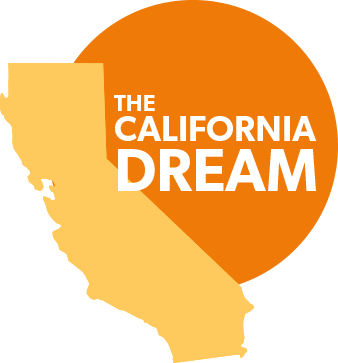Effective on April 13, 2022
We believe in being clear and open about how we collect and use data related to you. This Cookie Policy applies to our website (The California Dream: Advancing Solutions for Our Shared Future), emails, or resources that link to this policy or incorporate it by reference; it supplements our Website Privacy Notice. We use cookies and similar technologies, such as pixels or click-through URLs, in order to provide our services. This Cookie Policy explains the technologies that we use, why they are used, and your right to control their use.
What are third-party cookies and how do you use them?
We use a variety of cookies or tracking technologies to understand how visitors and users interact with our websites, emails, and other resources.
Cookies. Cookies are small text files sent by your computer or device each time you visit The California Dream: Advancing Solutions for Our Shared Future. They are stored in your browser and allow a website or a third party to recognize the browser on your device. Other technologies, including identifiers associated with your device, and other software, are used for similar purposes.
“First-party cookies” are set by the website owner or service provider (in this case Chan Zuckerberg Initiative (“CZI”)).
“Third-party cookies” are a type of cookie placed by someone other than CZI. These cookies may be persistent and gather browsing activity across multiple websites and across multiple sessions (“persistent cookies”). They are stored until you delete them, or until they expire after the time period set in that third-party cookie. Other third-party cookies may be temporary cookies stored on your device while you visit our site that expire when you close your browser (“session cookies”). The table below lists the third-party cookies and pixels that we use.
Pixels. We also use pixels: a type of technology placed on a website or within the body of an email for the purpose of tracking certain activity, such as views of a website or when an email is opened. Pixels are often used in combination with cookies, but turning off cookies may not stop pixels from detecting a website visit or if you opened a message.
Click-through URL. If you receive newsletters, updates, or other information from us, our emails may use a “click-through URL” linked to content on our sites. When you click one of these URLs, they pass through a separate web server before arriving at the destination page on our sites. We use this click-through data to help us understand how recipients respond to, or interact with, our emails. If you prefer not to be tracked in this way, please do not click text or graphic links in emails you receive from us.
What cookies and similar technologies do you use?
You have choices and control over the cookies that you allow onto your browser. You can learn more and adjust your cookie preferences by visiting the Cookie Settings link. For example, your browser may offer settings that allow you to choose whether browser cookies are set and to delete them. For more information about these controls, visit your browser “help” resources. Below are the types of cookies and pixels that we use for the website:
Since the number and names of cookies and pixels may change, this table may be updated from time to time and when we update it, we will note material changes in this notice. The expiration dates for our cookies below generally apply on a rolling basis or from the last time a user has interacted with the Website.
Last Updated April 13, 2022
Strictly Necessary
Functional
Analytics
Marketing & Social Media
How do I manage third-party cookies?
Your web browser may allow you to manage your cookie preferences, including to delete and disable cookies. You can take a look at the help section of your web browser or follow the links below to understand your options. If you choose to disable cookies, some features of our Website or Services may not operate as intended.
- Google Chrome: https://support.google.com/chrome/answer/95647?hl=en
- Microsoft Internet Explorer: https://support.microsoft.com/en-us/help/17442/windows-internet-explorer-delete-manage-cookies
- Safari (Desktop): https://support.apple.com/guide/safari/manage-cookies-and-website-data-sfri11471/mac
- Safari (Mobile): https://support.apple.com/en-us/HT201265
- Mozilla Firefox: https://support.mozilla.org/en-US/kb/cookies-information-websites-store-on-your-computer
- Opera: https://help.opera.com/en/latest/web-preferences/#cookies
- Android Browser: http://support.google.com/ics/nexus/bin/answer.py?hl=en&answer=2425067
